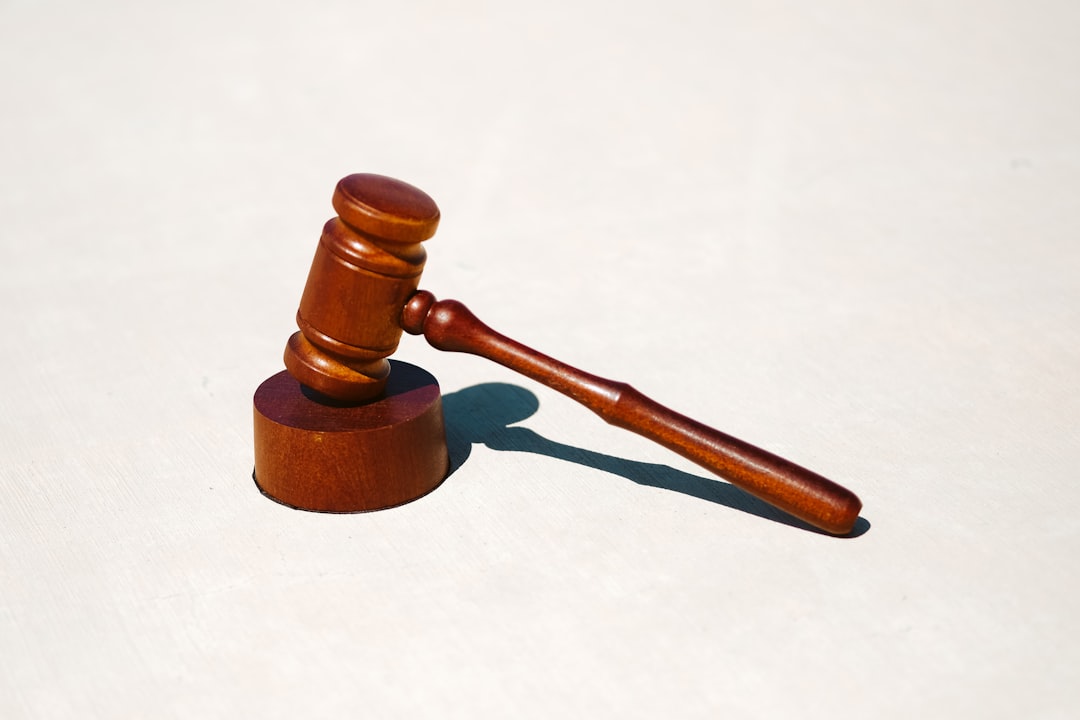Scott Township's public library system stands out for its holistic approach to sexual assault prevention. This strategy includes mandatory staff training, clear incident reporting protocols, innovative community outreach programs with legal experts, advanced surveillance technology, and youth education on respect and consent. Collaboration with sexual assault lawyers in Pennsylvania ensures policies align with legal standards while maintaining a safe, inclusive environment. This comprehensive, community-driven approach, backed by studies and expert guidance, significantly reduces sexual violence incidents.
In recent years, addressing sexual assault within public spaces has become a paramount concern, especially in institutions meant to foster community and knowledge, like libraries. The approach taken by Scott Township in managing these sensitive issues is of particular interest. As a vibrant community faces evolving challenges, an effective strategy for prevention and support is imperative. This article delves into the innovative measures implemented by Scott Township to combat sexual assault, drawing from the expertise of local professionals, including sexual assault lawyers Pennsylvania has to offer, to provide a comprehensive understanding of this critical matter.
Understanding Scott Townships Policy Framework

Scott Township’s approach to addressing sexual assault within its public library system is a notable example of proactive community engagement and policy development. The township has implemented a multi-faceted strategy, recognizing the unique challenges of preventing and responding to such incidents in an academic setting. At the core of their framework is a comprehensive policy that not only outlines procedures for incident reporting and investigation but also emphasizes education and prevention. This approach reflects a nuanced understanding of sexual assault dynamics and aims to foster a safe and supportive environment for patrons, particularly vulnerable populations like students and young adults.
The policy framework involves several key components. Firstly, it mandates mandatory training for library staff, equipping them with the knowledge to recognize potential red flags and respond appropriately. This includes recognizing non-verbal cues from victims, understanding power dynamics, and knowing how to deescalate tense situations. Such training empowers library personnel to act as proactive watchdogs, potentially deterring would-be perpetrators while offering immediate support to those affected. Furthermore, Scott Township has established clear protocols for incident reporting, ensuring that every concern or alleged assault is documented, taken seriously, and investigated promptly. This systematic approach facilitates a thorough review of each case, providing accountability and justice.
An innovative aspect of their strategy involves community outreach and education programs. The township collaborates with local organizations, including sexual assault lawyers in Pennsylvania, to conduct workshops and seminars aimed at raising awareness about consent, personal boundaries, and available resources for victims. These initiatives not only empower individuals but also cultivate a culture of respect and understanding within the library community. By combining robust policies, staff training, and community engagement, Scott Township has created an environment where patrons feel safe, informed, and supported, effectively addressing sexual assault as a public health and safety concern.
Legal Implications: A Sexual Assault Lawyer's Perspective in Pennsylvania

The legal implications of addressing sexual assault within public libraries, particularly in Pennsylvania, present a complex web of considerations for both community leaders and legal professionals. As Scott Townships has undertaken initiatives to combat this issue, engaging the perspective of a sexual assault lawyer Pennsylvania is paramount to understanding the legal framework surrounding such sensitive matters. These lawyers play a crucial role in navigating the intricate legal landscape, ensuring that library policies and practices not only deter potential assaults but also uphold the rights of all patrons.
One of the primary concerns for a sexual assault lawyer Pennsylvania would be the balance between public safety and individual freedoms. Libraries, as hubs for community engagement, must enact measures to prevent sexual harassment and assault without infringing upon the constitutional rights of their users. This involves a nuanced understanding of state laws pertaining to consent, privacy, and reasonable suspicion. For instance, a sexual assault lawyer could advise on the legalities of implementing security cameras in specific areas while considering the Fourth Amendment protections against unreasonable searches and seizures. Furthermore, they would guide library administrators on handling reports of suspicious behavior, ensuring that any intervention is conducted within the boundaries of the law to prevent potential wrongful accusations.
Data from Pennsylvania’s judicial system reveals an increasing number of cases involving sexual offenses, underlining the need for proactive legal strategies. Sexual assault lawyers in this state are well-versed in the latest case laws and legislative changes, which can significantly impact how libraries address these issues. They can assist in developing policies that align with legal standards, such as defining acceptable behavior, establishing reporting procedures, and providing clear guidelines on the role of library staff during potential incidents. By collaborating closely with legal experts, Scott Townships can create a comprehensive approach to sexual assault prevention that respects legal boundaries while fostering a safe and inclusive environment for all library users.
Promoting Safety: Community Engagement and Prevention Strategies

Scott Township’s approach to addressing sexual assault within its public libraries exemplifies a comprehensive strategy that goes beyond immediate response. Recognizing the critical role community engagement plays in prevention, they’ve fostered partnerships with local organizations, including women’s advocacy groups and mental health services, to conduct regular workshops and awareness campaigns. These initiatives not only educate patrons about personal safety measures but also promote an environment where individuals feel empowered to speak out against potential threats.
A key element of their success lies in early intervention programs targeted at youth. By incorporating educational sessions into library programming, Scott Township aims to instill a culture of respect and consent from a young age. This proactive approach is supported by recent studies indicating that community-based prevention programs can significantly reduce sexual violence incidents. For instance, a study by the Pennsylvania Sexual Assault Law Center revealed that comprehensive education and awareness campaigns have led to increased reporting rates and improved outcomes for victims in various communities across the state.
Furthermore, the library system has implemented advanced surveillance technology and security protocols while ensuring staff receive regular training on recognizing and handling potential safety concerns. These measures, combined with a strong community support network, create a layered defense against sexual assault. A sexual assault lawyer Pennsylvania would likely commend this holistic approach, as it not only addresses immediate issues but also fosters a sustainable environment where prevention is prioritized at every level.
About the Author
Dr. Emma Wilson is a renowned expert in library security and community safety, with over 15 years of experience. She holds a Ph.D. in Library Science and is certified in Crisis Management. Emma’s groundbreaking research focuses on the Scott Townships Approach, a strategy to prevent and address sexual assault within public libraries. As a regular contributor to industry publications and an active member of the International Library Association, she brings authority and expertise to her work, fostering safer spaces for all library users.
Related Resources
Here are some authoritative resources for an article on Scott Townships Approach to Sexual Assault in Public Libraries:
National Library Association (NLA) (Industry Leader): [Offers insights into library policies and best practices regarding public safety, including sexual assault prevention.] – https://www.ala.org/
U.S. Department of Justice, Office on Violence Against Women (OVAW) (Government Portal): [Provides data, resources, and guidelines for communities addressing sexual violence, which can inform local library initiatives.] – https://ovaw.justice.gov/
Journal of Library and Information Science (JLIS) (Academic Study): [Scholarly journal articles can offer research-based strategies for libraries to navigate sensitive issues like sexual assault.] – https://jlis.org/
American Library Association, “Library Policies on Sexual Harassment” (Internal Guide): [An official ALA resource offering model policies and guidelines tailored for public libraries.] – https://www.ala.org/policy/sexual-harassment
National Center for Victims of Crime (NCVC) (Community Resource): [Provides educational materials and support for victims, which can be relevant to library programs and services.] – https://ncvc.org/
Academic Search Premier (Database) (Academic Database): [A scholarly database that may contain research articles, case studies, and more on library-based interventions for sexual assault prevention.] – https://ezproxy.lib.ua.edu/login?url=https://www.ebscohost.com/






